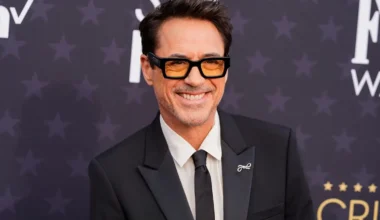Music is a powerful tool that allows people to understand the complexities of different cultures and the everyday lives of populations from the other side of the globe. Songs allow listeners to broaden their horizons, and even esteemed figures such as Led Zeppelin frontman Robert Plant use the medium to enhance their knowledge of the world.
Within his music, Plant has lifted a lid on his own life by tackling deeply personal topics. For example, he dealt with the loss of his son, Karac, on the Led Zeppelin track ‘All My Love’, which appeared on their final album, In Through the Out Door. Although the song didn’t deal with global politics, it’s an unflinchingly honest insight into an unthinkable tragedy that he suffered.
Since its birth in the 1970s, hip-hop has become a safe haven for artists to share their stories and allows them to provide insight into the events that have shaped their lives. It’s allowed those from challenging backgrounds to express themselves and, more importantly, a chance to escape from a bleak reality.
While hardship can heartbreakingly often lead to fatal consequences, it can also work as inspiration for art. The Stone Roses bassist Mani once suggested the draconian measures put in place on working-class communities by Margaret Thatcher inadvertently led to Manchester being a musical hub, as there was nothing else to do except create.
He told The Guardian in 2005: “It’s gotta be down to dole culture. There are gangs of lads with loads of time on your hands, and you’re all in the same boat … you’re never alone on the dole in Manchester. And they were also the glory days when you could get your bedding grant and your cooker and all of that.”
On the other side of the Atlantic, Eminem was raised in Detroit and used rap battles to escape from a future of abject poverty. While he’s been a multi-millionaire for decades, his rise to fame was full of struggle. Today, Marshall Mathers continues to shine a light on marginalised communities, which Plant finds invigorating.
Although many hip-hop artists do the same, Plant isn’t blessed with an encyclopedic knowledge of the genre. However, Eminem is on his radar and a figure he believes is necessary in American culture due to his storytelling capabilities.
During an interview with Uproxx in 2017, Plant was asked whether he was a fan of hip-hop, to which he honestly replied: “No, not really. Although I don’t know where Eminem fits into all that stuff, but as far as him being a kind of urban raconteur, I find him stimulating, and I think he’s got a really important voice for today’s America and circumstances. I think there was a lot of that stuff starting up with the Fugees, way back.”
Granted, Eminem isn’t as much of an essential voice as he once was while at the peak of his powers. Nevertheless, his music’s transformative effect on Plant speaks volumes about his seismic cultural impact.







